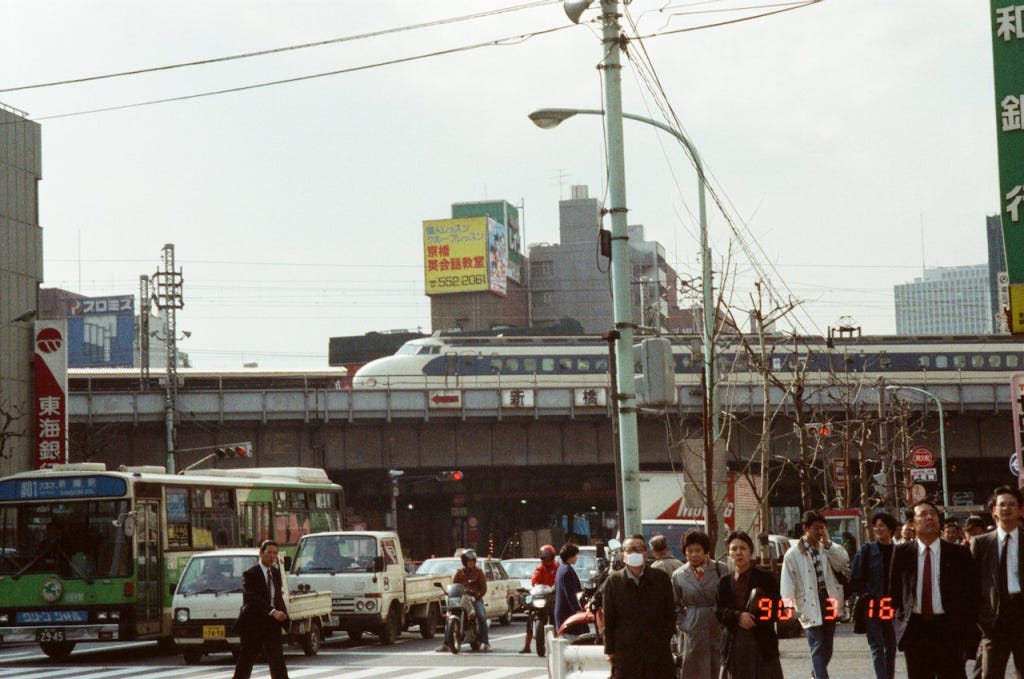Foreigners have certain sayings about Japan that can help you to understand deep parts of the cultural iceberg that are normally hidden.
1. The Japanese would rather lose their way than win any other way.
Tradition and what the boss said to do is valued, at times, more highly than life itself.
This was apparent in the Pacific War.
In Papua New Guinea, the outnumbered, poorly trained and equipped Australians were nearly blown away by the the approaching juggernaut. However, when they adjusted their tactics to prepare for following assaults, they were confused to find that the Japanese forces kept on attacking in exactly the same way again and again and again, thus nullifying their otherwise formidable power and halting their advance.
The Japanese were unable to change right in the middle of things.
In another incident, the Emperor once asked his government why the Americans had been able to fortify captured Pacific islands so quickly compared to the Japanese who had held them for years. The answer was that the Americans immediately shipped machinery to each island for construction. This seemed an alien and scientific way of fighting to the banzai-charge preferring Japanese leadership.
The term ‘international standard’ is used in Japanese but the concept itself hasn’t really caught on. People tend not to make international comparisons. Why don’t the Swiss have to physically go to Town Hall seventeen times a year to fill out various forms? No one asks. No one knows anything about Swiss bureaucracy. Even South Korea might as well be the Moon.
Once the Japanese have a way of doing things, they get comfortable with it and would prefer to just keep doing that forever rather than go through the stress of comparing it to other ways of doing things and then try to reform and optimize.
Along these lines:
2. Everything must improve but nothing may change
One area that is done ‘their way’ is English education. ‘Their way’ means a strong focus on grammar and little focus on communication, thus making the subject more of an IQ and pain tolerance test than a living language to be used in life.
Every so often there will be meetings held about this problem at the school, prefectural or national levels. Policy wonks will talk at length about the need to improve language education. Despite point 1 above, someone might even bring up how Japanese English skills are falling behind those of South Korea and other comparable nations. Long reports will be written.
Finally, there will be consensus that there needs to be more communication and less grammar in the curriculum.
Next, those responsible for approving the change will run into the problem that university entrance exams focus largely on English grammar. Also, parents would complain about an unfair advantage to kids who can afford private English conversation tutoring. Thus, no change occurs. Thousand-page reports are carefully filed on dusty shelves, and may or may not be referred to when the process repeats several years later.
The same ‘hey let’s reform, hang on that would require change, okay no forget it’ song and dance also happens at the university level, if you’re wondering, and at every other level.
Why does the military lack the will and capability to defend the nation? Why has the pension system been obviously unsustainable for decades? Why does the rice market make no sense?
It’s because improvement would require change, and for some people to be disadvantaged. This would be socially disruptive. Thus, nothing happens.
Only the eternal, repetitive discussion about how to improve remains.
3. Japan has been stuck in the year 2000 since 1980
This is a joke about how Japan seemed ridiculously futuristic in 1980 but in 2025 still uses fax machines.
It raises an interesting point: why was rapid progress once possible, and why has everything ground to a halt now?
There have been periods of rapid change in Japan, the most recent being the post-war boom and before that the Meiji Restoration. Both were triggered by the necessity of external events – the arrival of the Black Ships and then the US occupation.
In the most recent boom, the population was young and hungry for success, willing to work murderous hours in order to build a better tomorrow. Every new train line, factory, and innovation was greeted with enthusiasm.
In 2025, the average person is older than me, plus the elderly are more inclined to vote than anyone else. Thus, ‘pension uber alles.’
At the level of companies or departments, chiefs are safest making no decisions and taking no risks until they safely reach retirement age. Reform is necessary but also tends to go wrong in unpredictable ways. Not wanting any trouble, they are incentivized to stick to stable stagnation and decline instead.
In 1980, change was welcome because Japan had recently been poor, defeated and destroyed. Who wanted that?
In 2025, there is still enough comfort in the recent past to want to maintain it just a little longer. ‘Just until I die’, some people probably think, though I’ve never heard it spoken out loud.
Conclusion
Where does this end?
The demographics don’t look like turning any time soon. In fact, Japan will only get older for the foreseeable future.
One possible outcome could be a new crisis like the Black Ships that will force change. China might help out here.
Another path would be for the stagnation to become so bad – through inflation or servicing the national debt – that even abominable change seems better than continuing as is.
My prediction is that Japan will one day go through a sudden and massive wave of reform, lead the world in many areas once again – and then stagnate for many more comfortable decades.
It’s their groove. Let Japan be Japan.





I remember reading that the first Japanese soccer teams would have an issue that all the players would only pass to the captain.